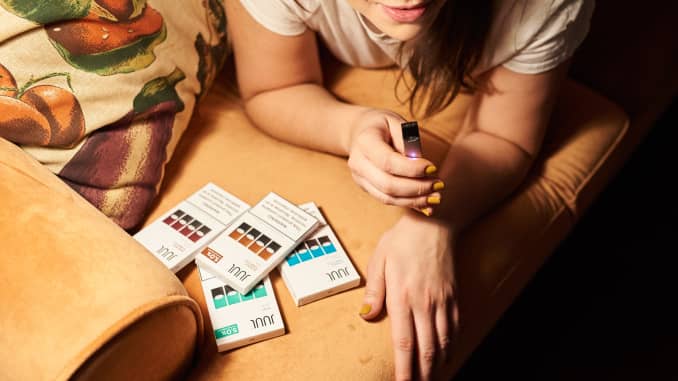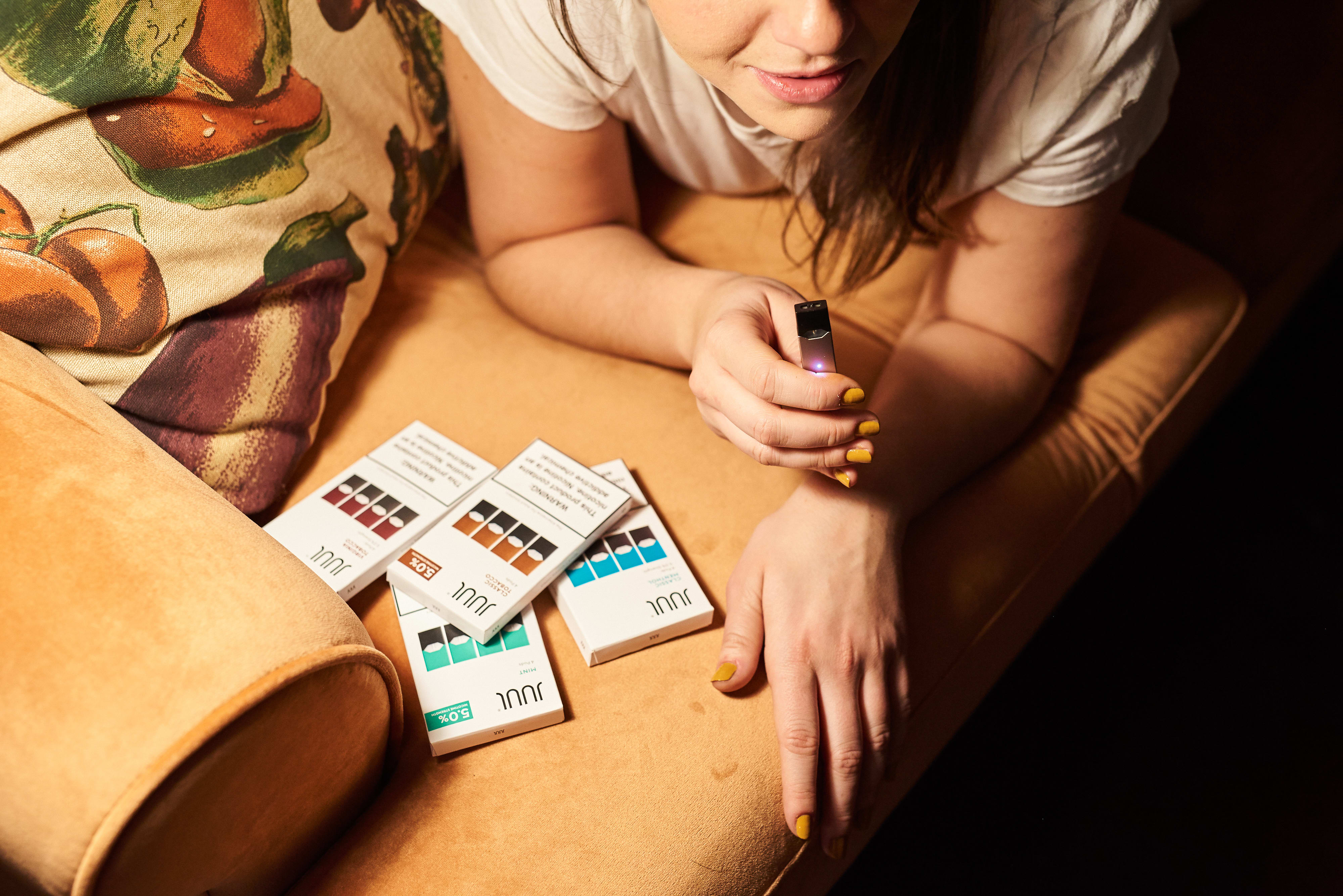Altria stock craters after $4.1 billion hit from Juul investment, blames growing legal risk

Altria stock cratered as much as 7% Thursday after the tobacco company posted a fourth-quarter loss and took a $4.1 billion hit on its investment in e-cigarette company Juul, which faces mounting litigation and scrutiny over a surge in teen vaping.
The Richmond, Virginia-based Marlboro maker said the impairment charge was due to the increased number of legal cases against Juul and the expectation that litigation will grow. Since the end of October, there has been an 80% increase in the number of legal cases pending against Juul, Altria said. Its shares have a market value of nearly $90 billion.
In its fourth quarter, Altria swung to a loss of $1.81 billion, or $1 a share, from net income of $1.25 billion, or 66 cents a share, a year ago.
Excluding the impairment charge, Altria earned $1.02 per share, in line with Wall Street estimates published by Refinitiv.
Sales of $4.80 billion, however, fell short of analyst expectations of $4.88 billion.
Altria invested $12.8 billion in Juul in December 2018, acquiring a 35% stake, as it looked to expand beyond traditional cigarettes. Smoking rates have been declining. Altria said Thursday it expects the U.S. cigarette industry volume to fall 4% to 6% in 2020.
Altria’s writedown on its investment in Juul comes amid public health concerns about a mysterious vaping illness that has caused 60 deaths across the U.S. and hospitalized 2,711 people as of Jan. 21.
Those illnesses, while not directly tied to Juul, have heightened the public concern about vaping in general. Juul has faced lawsuits tied to its marketing practices, and its flavored pods have been banned in several markets amid concerns that the sweet flavors were coaxing teens to vape, which could cause a new generation to become addicted to nicotine.
Altria added that its Iqos product has now rolled out to 500 retail stores in Atlanta and Richmond. Iqos is Altria’s own attempt to provide an appealing alternative to cigarettes. The device heats tobacco, but doesn’t burn it, and is designed to give users the same rush of nicotine as smoking with fewer toxins.
Altria released the device in October after receiving Food and Drug Administration approval in April of last year. The FDA set strict marketing guidelines aimed at ensuring only adult smokers use Iqos, not kids.
“Despite the unexpected challenges related to our investment in JUUL, which led to impairment charges and reported losses, we made significant progress advancing and building our noncombustible business platform with the launch of IQOS and completion of the on! transaction,” Altria CEO Howard Willard said in a press release. “We believe Altria’s enhanced business platform best positions us to succeed under various future category scenarios.”
Revised agreement with Juul
In all of 2019, Altria said it recorded $8.6 billion in noncash pretax impairment charges tied to its investment in Juul, which brings the value of its stake in Juul to $4.2 billion as of Dec. 31.
The deal still is waiting for antitrust clearance, which Altria expects to be resolved by July.
Juul plans to combat underage use and provide a safer alternative to cigarettes for adult smokers while the company navigates regulatory scrutiny, CEO K.C. Crosthwaite said in a statement.
“We are focused on building a company for the long-term by preparing high-quality, scientifically rigorous Premarket Tobacco Product Applications to earn authorization in the U.S. while we take a methodical approach to our overseas presence,” he said.
To reflect the new value of the Juul investment, Altria cut its long-term earnings per share growth targets for 2020 to 2022 from a range of 5% to 8% to an adjusted goal of 4% to 7%.
In 2020, Altria expects its adjusted earnings per share to be in the range of $4.39 to $4.51, representing a growth rate of 4% to 7% from an adjusted earnings of $4.22 per share in 2019.
Altria and Juul have agreed to revised terms of Altria’s investment in the company, Altria said Thursday. Altria will continue to help Juul navigate regulatory affairs, which will include helping Juul apply for its premarket tobacco product applications.
But by the end of March, Altria will discontinue all other services that were part of the original investment agreement.
Juul also agreed to restructure its board upon antitrust clearance from the Federal Trade Commission to be composed of two directors designated by Altria, three independent directors, the Juul CEO and three directors named by Juul shareholders other than Altria.
If Juul is prohibited by federal law from selling e-cigarette products in the U.S. for at least a year or if Altria’s stake in Juul drops below 10% in value of its initial $12.8 billion investment, Altria has the option to be released from its noncompete agreement.
“This agreement is a continuation of the reset initiated by JUUL’s leadership team,” CEO Willard said. “We look forward to working with the company under this structure to support JUUL’s commitment to working with regulators and submitting the best possible PMTA.”
E-cigarette companies have been heavily scrutinized by health regulators. India, Thailand and China have imposed bans of varying degrees on vaping products amid rising fears about their safety and growing evidence that teen vaping is on the rise.
Earlier this month, the FDA issued a ban on most fruit- and mint-flavored nicotine vaping products in an effort to curb a surge in teen use. Juul in November halted the sale of its flavors in the U.S., excluding menthol, Virginia tobacco and classic tobacco.
[“source=cnbc”]




